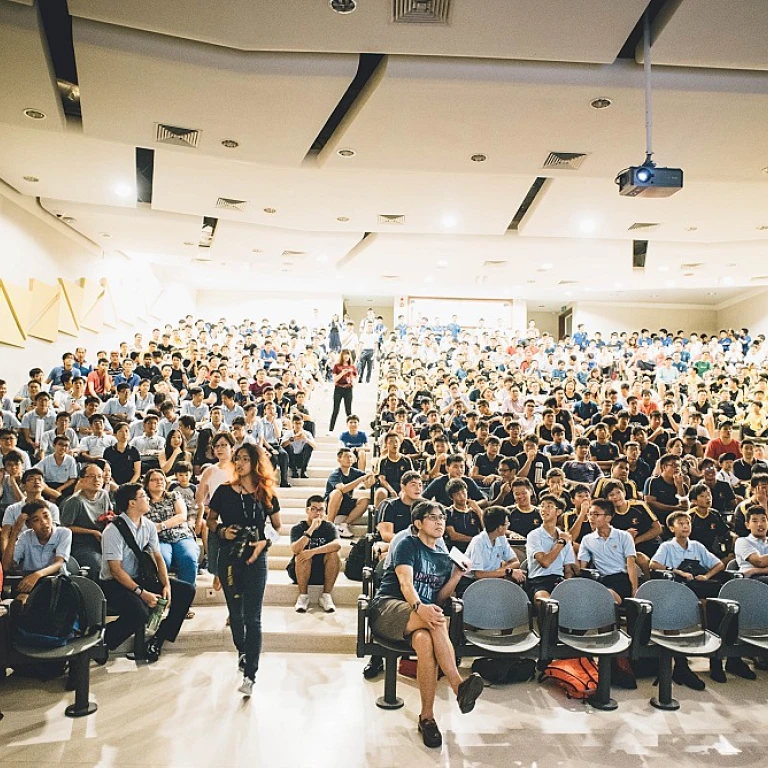
Understanding the Hope-Action Theory
Decoding the Foundations of Hope-Action Theory
The Hope-Action Theory, emerging as a powerful framework within professional mentoring, roots itself in goal-directed strategies emphasizing hope and action. It underpins various aspects of career development, aiming to enhance clarity and direction for individuals as they navigate their professional journeys. This theory interlaces seamlessly with career development concepts, offering a unique perspective on how students and professionals can leverage hope as a dynamic catalyst for growth and success. It aligns closely with the educational goals espoused by institutions like the University of British Columbia and is a significant component of career counseling and planning. Grounded in solid theoretical foundations, this approach focuses on three primary domains:- Hope as a Critical Element: Hope functions as more than just an emotion within this theory; it's a way of thinking that fuels action. This perspective aligns with the broader educational theories that prioritize positive psychology in student and career development.
- Action-Oriented Methodologies: As its name suggests, action is intrinsic to the Hope-Action Theory, advocating for proactive measures and strategic career planning. This aligns with the strategies often discussed in professional development resources like those from Cognella.
- Goal Setting and Reflection: Reflective practices combined with strategic goal setting form the backbone of effective career flow and recovery techniques.
The Role of Hope in Mentoring
The Importance of Hope in the Mentoring Journey
Hope plays a pivotal role in the mentoring process, acting as a catalyst for personal and professional growth. In the context of career development, hope is not merely a passive wish for success; it is an active component that fuels the journey towards achieving one's goals. This aligns with the principles of the Hope-Action Theory, which emphasizes the integration of hope and action in career planning and development.
Hope in mentoring can be seen as a bridge between a mentee's current situation and their future aspirations. It provides clarity and direction, enabling mentees to envision a path forward. This is particularly relevant in educational settings, such as universities, where students often seek guidance on their career paths. By fostering hope, mentors can help students navigate their educational and career journeys with greater confidence.
Facilitating Career Flow Through Hope
Hope-centered mentoring encourages a state of career flow, where individuals are fully engaged and motivated in their career development activities. This concept, explored by experts in the field, suggests that when mentees are hopeful, they are more likely to experience a sense of flow in their work and learning processes. This flow is essential for sustained career growth and satisfaction.
Mentors can facilitate this by encouraging reflection and goal setting, helping mentees to articulate their aspirations and develop actionable plans. This approach not only supports career recovery for those facing setbacks but also enhances decision-making skills, allowing mentees to make informed choices about their career paths.
Hope as a Tool for Building Resilience
Incorporating hope into mentoring practices also aids in building resilience. When mentees encounter challenges, a hopeful mindset can help them persevere and adapt. This resilience is crucial for navigating the complexities of career development, especially in dynamic fields where change is constant.
To explore more about structured mentoring sessions that integrate hope and action, consider reading this article. It provides insights into how structured approaches can enhance the mentoring experience, ensuring that both hope and action are effectively harnessed for career success.
Action-Oriented Strategies for Mentors
Effective Strategies for Mentors
Professional mentoring is a dynamic process that thrives on action-oriented strategies. Drawing from the Hope-Action Theory, mentors can facilitate meaningful career development by incorporating specific techniques into their mentoring approach. This involves a blend of hope and action, crucial for guiding mentees toward achieving their career goals.
To begin with, mentors should focus on fostering a hopeful mindset in their mentees. This involves setting clear, achievable goals that align with the mentee's aspirations. The clarity of these goals can significantly impact the mentee's motivation and commitment to their career path. By encouraging reflection and continuous learning, mentors can help mentees develop a deeper understanding of their career flow and decision-making processes.
Practical Steps for Mentors
- Goal Setting: Assist mentees in defining specific, measurable goals. This process should include short-term objectives that build towards long-term career aspirations.
- Action Inventory: Encourage mentees to take stock of their skills and experiences. This reflection helps identify areas for growth and potential opportunities for development.
- Career Planning: Guide mentees in creating a detailed career plan. This plan should outline the steps necessary to achieve their goals, incorporating elements of hope and action to maintain momentum.
- Feedback and Reflection: Provide constructive feedback regularly. Encourage mentees to reflect on their progress and adjust their strategies as needed.
By integrating these strategies, mentors can support mentees in building resilience and adaptability. The synergy of hope and action not only enhances the mentoring relationship but also empowers mentees to navigate their career paths with confidence.
Building Resilience Through Hope and Action
Fostering Resilience Through Hope-Driven Actions
In the dynamic field of career development, blending hope with action-oriented strategies plays a crucial role in building resilience among mentees. This blend not only supports students in higher education institutions like universities in British Columbia but also aids individuals in career recovery and planning phases. The culmination of actionable steps alongside a hopeful mindset creates an environment ripe for learning and progression, encouraging mentees to embrace career flow and development qualities that are essential in today’s workforce.- Hope-Inspired Goal Setting: By instilling hope, mentors can guide their mentees towards clear and achievable goals. This hope-centering is instrumental in providing clarity and vision, essential for goal setting that resonates with the mentees' aspirations in education and professional life.
- Integrating Reflection for Effective Action: Reflection acts as a bridge between hope and action. Encouraging regular self-reflection can lead mentees to uncover deeper insights into their career goals. It remains a pivotal component of the hope-action theory, enabling students and professionals alike to navigate their career paths effectively.
- Promoting Career Flow Through Consistent Planning: Career flow, a state of peak concentration on career tasks, is bolstered through ongoing planning and incremental goal achievement. This consistency aids individuals in staying motivated, supporting both immediate actions and long-term aspirations. The development of such a mindset is beneficial for fostering resilience.
Case Studies: Success Stories in Mentoring
Captivating Success Stories: Real-life Examples of Mentoring Triumphs
When the principles of the Hope-Action Theory are effectively integrated into mentoring practices, the results can be transformative for both mentors and mentees. There have been numerous instances where this approach has paved the way for significant career development and personal growth. One compelling narrative is that of a group of university students who participated in a comprehensive mentoring program. Through consistent application of hope-centered strategies, these students were able to redefine their career goals with clarity and purpose. The incorporation of goal setting and career planning sessions allowed them to map out their professional trajectories, keeping hope and action intertwined. Such methodologies encouraged a deeper reflection on their aspirations, bridging the gap between education and real-world work environments. In another example, a national career development association applied hope and action inventory techniques to revitalize underperforming employees. By fostering a supportive environment focused on career recovery, the initiative highlighted how hope could drive decision making and instill a renewed sense of purpose. The action-oriented strategies delineated in the program shifted the work culture to one of proactivity and resilience. Organizations that have embraced the Hope-Action Theory continually witness tangible results in career flow and development. Through the mentorship initiatives, there is a noticeable increase in employee engagement and a more robust counseling framework that encourages lifelong learning and personal growth. This illustrates the potential of the Hope-Action Theory in fostering not only personal development but also collective organizational success. The theory's ability to merge reflective practices with objective career development has set a precedent in the mentoring sector, influencing numerous educational and professional settings worldwide. With clear planning and application, the Hope-Action Theory opens up unparalleled opportunities for personal and career advancement.Integrating Hope-Action Theory into Mentoring Programs
Embedding Hope-Action Theory in Mentoring Frameworks
Integrating the Hope-Action Theory into mentoring programs requires a strategic approach that aligns with the core principles of career development and education. This theory, grounded in hope and action, provides a robust framework for guiding mentors and mentees towards achieving their professional goals. Here's how you can embed this theory into your mentoring practices:
- Goal Setting and Career Planning: Establish clear, actionable goals that align with the mentee's career aspirations. This involves a collaborative process where mentors help mentees identify their career flow and development paths, drawing on the principles of hope and action theory.
- Structured Reflection and Feedback: Encourage regular reflection sessions where mentees can assess their progress and adjust their strategies. This reflective practice fosters clarity and allows for continuous learning and development.
- Action Inventory and Decision Making: Utilize tools such as action inventories to help mentees identify their strengths and areas for improvement. This aids in effective decision making and career planning, ensuring that mentees are well-equipped to navigate their professional journeys.
- Building Resilience and Career Recovery: Equip mentees with strategies to build resilience, a crucial component of career recovery and success. By fostering a hope-centered approach, mentors can support mentees in overcoming challenges and setbacks.
- Collaboration with Educational Institutions: Partner with universities and educational bodies to integrate the Hope-Action Theory into career counseling and mentoring programs. This collaboration can enhance the educational experience and provide students with valuable career development opportunities.
By embedding the Hope-Action Theory into mentoring programs, mentors can create a supportive environment that encourages growth, resilience, and success. This theory not only guides mentors in their roles but also empowers mentees to take charge of their career paths with confidence and hope.













